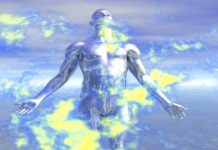Scientists are dissecting the placebo effect in hopes of deploying its active ingredients as treatments. So far there have been mixed views on this particular type of treatment. Some researchers are still skeptical to allow this method as a remedy and an alternative to conventional medicines whereas many other researchers are in favour of making it into a separate line of treatment. The powers of placebo effect are immense as shown in some of the case studies. Trisha Gura gives us an in-depth knowledge about the successive impact of the placebo effect in today’s medical world through her enriching article published in Scientific American Mind.
Back in the 18th century, German physician Franz Mesmer peddled a concept called animal magnetism. Creatures contain a universal fluid, he asserted, that when blocked in flow, caused sickness. Mesmer used magnetized objects to re- direct that flow in patients, initiating unusual body sensations, fainting, vomiting or violent convulsions that ended in profound salubrious effects. Skeptical, Benjamin Franklin and French chemist Antoine-Laurent Lavoisier simulated one of Mesmer’s typical sessions in 1784. They asked people suffering from ailments ranging from asthma to epilepsy to hug “magnetized” trees.
The people swooned and shook, as expected. But then the researchers divulged that the trees were never magnetized. And everyone realized that something else was inducing the reactions to the trees. That something was later dubbed the placebo effect. In the centuries since, the placebo response— that is, the beneficial result in a patient from an inert substance or bogus procedure—has emerged repeatedly in many forms. Researchers have shown that sugar pills reverse insomnia, fake injections relieve pain and sham surgeries treat Parkinson’s disease.
Responses to such dummy treatments can be surprisingly powerful. Studies on placebos for depression show, for example, that they can reproduce more than 80 percent of the positive effects of antidepressants. That potential power has motivated a growing cadre of researchers to study the placebo, backed by an abundance of support from federal agencies, foundations, pharmaceutical companies and advocates for alternative health. “Right now we are overfunded,” says Ted J. Kaptchuk, director of the newly launched Program in Placebo Studies at Beth Israel Deaconess Medical Center in Boston.
“We have a lot of NIH projects. We are actively courting the pharmaceutical industry, and we have no problem getting entry.” One big challenge, however, is that placebo responses remain unpredictable. People given the same pill or potion may show wildly different reactions. The effects can vary widely by illness. Pain, insomnia, fatigue, nausea, and disturbances to bowel, urinary or sexual function seem the most amenable to placebo treatments; broken limbs the least. Attempts to explain such variation have led scientists to delve deeper into the nature of the placebo effect. They have found that it shows up most prominently in illnesses that have a strong psychological component or when improvement is measured using subjective reports from patients.
With better neuroimaging tools and more sophisticated experimental designs, investigators are deconstructing placebo responses in the brain. They are finding that placebos can tap circuits governing expectation, attention, and emotion. A placebo’s power in these realms depends on social and environmental cues that act around the dummy pill, prick or potion. The doctor’s behavior, for example, plays an essential role.
“The placebo is about the terrain of medicine,” Kaptchuk observes. “What things are said; how the doctor behaves. It’s the rituals and symbols—sitting in the waiting room, the patient exam, et cetera. And then, at the psychological level, it is the active ingredients of hope and trust and imagination, which are really antithetical to a scientific world.”
Doctors hope to use this antithetical collection of findings to predict when and where a placebo will work and enhance its benefits in the clinic—ideally without deception. As the data reveal the biological mechanisms behind these “sham” remedies, placebos may become standard medical fare, used to augment and, in some cases, replace approved drugs and therapies. Incurable conditions, such as chronic pain, asthma, and Alzheimer’s disease, may one day yield to placebos, Kaptchuk suggests. Mesmer’s idea of animal magnetism may have been bunk, but what he inadvertently tapped was not.
-end-

Source
- Scientific American Mind, Trisha Gura



































